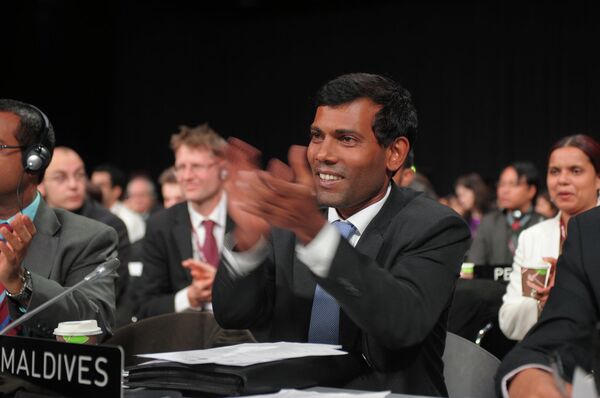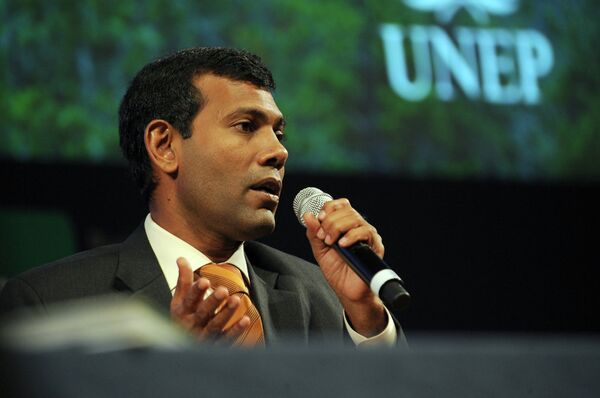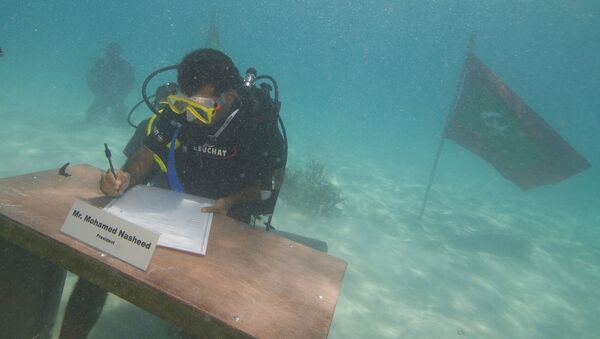
Nasheed came to power in 2008 in the Indian Ocean atoll nation that is called home by a mostly Muslim population of 330,000. During his administration, he was an outspoken critic of the international community’s failure to ratify a treaty to curb greenhouse gases. The Maldives is expected to sink into the ocean should global warming continue at its current rate.

His crusade against climate change was documented by the documentary "The Island President" which filmed his underwater meeting as well as his meetings with representatives from high-carbon emissions nations such as the US and China.
Nasheed was ousted in what his supporters called a coup by the police and army officers. He claimed he was forced to resign "at gunpoint" but his successor, Mohammed Waheed Hassan, denied that, arguing that Nasheed voluntarily gave up power after weeks of protests.
Nasheed ran for president again in 2013 but lost the election to Yaamin Abdul Gayoom, the half-brother of Maumoon Abdul Gayoom, who ruled Maldives for 30 years before Nasheed’s democratic election.


